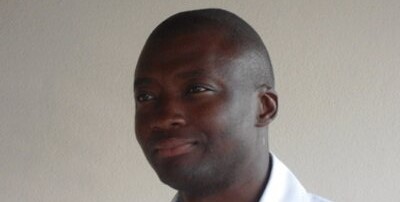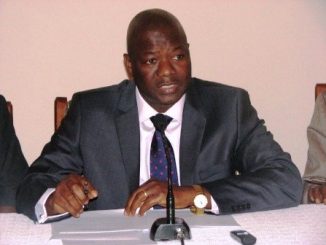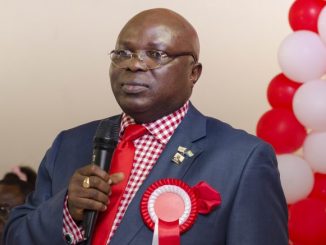
*SENEGAL ELECTIONS: A Democratic Litmus Test*
The democratic fortitude of the West Africa sub-region is being tested again as Senegal, one of the few countries that has never experienced a military coup, goes to polls on March 24, 2024. The Senegal elections come when the region is submerged in uncharted political waters, with four member states under military rule and elections-mandated governments struggling to come to terms with the realities of campaign promises. Three of the four countries under a military regime, Burkina Faso, Mali, and Niger, announced their separation from ECOWAS, stating mistrust and lack of the Pan-Africanism mantra as reasons for their decision to quit the regional block.
The democratic debacle that is unfolding in West Africa coincides with ECOWAS’ institutional restructuring to respond to emerging socio-economic and political circumstances of member states. While ECOWAS was established in 1975 primarily to foster economic integration, it expanded its mandate and rebranded into a socio-economic and, peace and security architecture in the early 90s in response to the political circumstances in Liberia and Sierra Leone. The institution has eventually metamorphosed and is increasingly focused on putting out fires.
Senegal, a country that was largely acclaimed as a beacon of democracy, has ignited reverberating chills to cheerleaders of the country’s democratic credentials as the President postponed elections scheduled for February 25, a directive constitutional experts criticized as a contravention of the country’s constitution and flagrant abuse of the citizens’ rights. The country has been caught up in a democratic quagmire. The democratic impasse sent people-centric activists over a tumultuous hump. The signs of the impasse have been as clear as daylight since 2021 when the leading opposition leader Ousmane Sonko was accused of rape and eventually arraigned and detained. Sall, who has unquestionably been a political bulwark in West Africa, has dampened what could have been a great legacy without attempting to tinker with the democratic calendar as required by the Constitution of Senegal.
In what looked like the foundation for a volcano bound to erupt, the Senegalese Constitutional Court’s ruling on February 15 that elections be held on March 24, 2024, was a reassuring testament to the Senegalese democratic resilience. Before the Constitutional Court’s ruling at a time when Macky Sall seemed to have rolled out his autocratic tenets with accustomed ease.
Importantly, as Senegalese go to the polls on Sunday, the role of civil society organizations, particularly citizen movements and networks, will continue to be crucial in ensuring transparent, fair and credible elections by leveraging their expertise, institutional capital and extensive national and internal.
Furthermore, the role of religion and religious authorities is worth noting in Senegal’s socio-political ecosystem. The religious leaders, widely considered the country’s moral conscience, wield substance power, and continue to pacify the political leaders to ensure peaceful and credible elections. Their role, in partnership with civil society and, of course, ECOWAS, who often take primacy on West African matters on the continent due to the subsidiary principle that grants a regional institution closest and well-positioned to intervene through mediation and other required means, continue to use diplomacy as the most vibrant tool for regional stability.
In 2023, a Senegalese court charged the popular opposition Ousmane Sonko with rape and then incitement of the youth. The charge, which was widely believed to be fabricated and politically motivated, triggered street protests and skirmishes in various parts of the country. In a similar fashion, opposition leader Khalifa Sall was also charged and convicted for corruption, while Karim Wade, son of the former Head of State and another leading opposition candidate, was barred from contesting due to his dual nationality.
Despite diplomatic engagements with President Macky Sall to respect the democratic process, the President’s recalcitrance, and determination to have a soft-landing retirement by attempting to tilt the electoral landscape and hopefully install barriers to any opposition candidate that could demand accountability has been on an unfettered path.
On the ECOWAS front, the Senegal situation saw a carefully crafted communique ‘requesting stakeholders to respect the democratic calendar as the constitution prescribes. What has played out was an outright dismissal and disrespect of the ECOWAS protocols on good governance. Like Alpha Conde of Guinea and Alhassane Outtara of Cote d’Ivoire that embarked on their democratic charade of extending their constitutional mandates, Macky copied from the autocrats’ playbook.
Additionally, the Senegal situation has triggered questions about the challenge of the powerful in the operations of intergovernmental organizations, which could be another opportunity for international relations practitioners and political scientists to probe the depth and impact of decision-making processes in intergovernmental bodies.
With alliance building among opposition parties supported by Ousmane Sonko and Karim Wade, the battle is bound to be trickier for Prime Minister Amadou Ba, President Sall’s candidate of the Benno Bokk Yakaar (BBY) coalition.
Finally, the die is cast! Senegalese, make us believe and be proud again that George Ayittey’s ‘African solutions to African problems’ work. May the leaders draw strength from the holy month of Ramadan and Lent for peaceful elections on March 24, 2024.
On est ensembles mes frères et sœurs. Bonne chance!
*Joe Hindovei Pemagbi*
Governance and Peace and Security Consultant




Leave a Reply